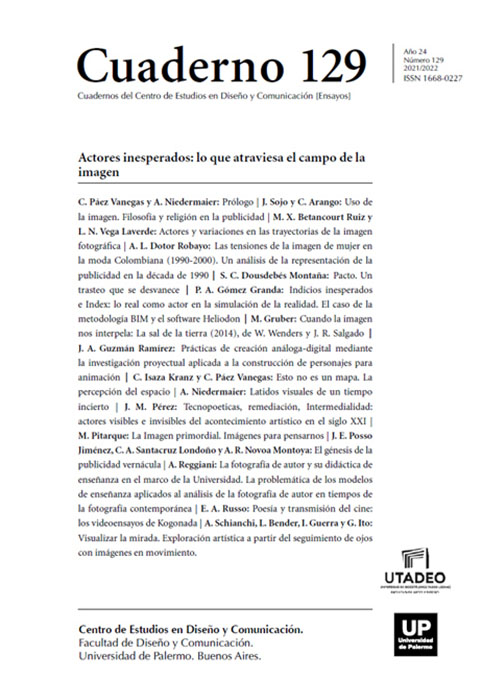Tecnopoeticas, remediación, Intermedialidad: actores visibles e invisibles del acontecimiento artístico en el siglo XXI
Abstract
This work develops the way in which the technopoetics of intermedial crossing update the possibility of generating an opening in the experience of the arts in the 21st century, relocating the notions of work, authorship, spectator and artistic experience in a theoretical detour.
In the world, language today has become a provisional, lowered and transitory space, a mere material to be accumulated, transferred, transformed and molded in the most convenient way, only to be discarded for the same purpose. Where once the narrative promised to lead us towards the rest of an ending, the flow of Internet language now forces us into unwanted deviations and even returns us to the starting point when we are lost: we are in an accelerated drift and in flux and we have become speed “fâneusr” pursuing an experience akin to “expanded writing.”
Two questions drive my analysis. What is this second reality in which we are stuck for most of our waking hours? How does this second reality redesign technopoetics of Art in Flow, putting the new intermedial phenomenology of the artistic event as an object of study?
References
Aarseth, E. (2004). “Literatura ergódica” en Literatura y Cibercultura . Sanchez-Mesa (Comp). Madrid: Arco/libros.
Bardini, T. (et al) (2016). “Manifiesto medioarqueologista. Tareas, posicionamientos y miradas posibles para los arqueólogos de medios” Luthor. Entender, destruir y crear. Disponible en Bootz, P. (2011). “La poesía digital programada: una poesía del dispositivo”. En
Kozac, C. (ed) (2011). Poéticas tecnológicas, transdisciplina y sociedad. Actas del seminario internacional Ludión/Paragraphe. Buenos Aires: Exploratorio Ludión.
Fuller, M. (2000). “Parece como si escribieras una carta: Microsoft Word” en Goldsmith,
K. (2015). Escritura no creativa. Gestionando el lenguaje en la era digital. Buenos Aires: Caja Negra.
Grossman, L. “Poems for the People” en Time Magazine, 7 de junio de 2007.
Hayles, K. (2002). Writing machines. Cambridge: MITPress.
Terranova, T. (2017). “Algoritmos, capital y automatización del común”. En: A. Avanessian y M. Reis, ed., Aceleracionismo. Estrategias para una transición hacia el postcapitalismo. Buenos Aires: Caja Negra.
Tiselli, E. (2009). “El turista miope aprende a tocar su propia flauta” disponible en Vaquero,
J. (2020). “El arte de hacer ‘máquinas’ que puedan hacer arte”. La Nación. Consultado 2/8/2020.
Los autores/as que publiquen en esta revista ceden los derechos de autor y de publicación a "Cuadernos del Centro de Estudios de Diseño y Comunicación", Aceptando el registro de su trabajo bajo una licencia de atribución de Creative Commons, que permite a terceros utilizar lo publicado siempre que de el crédito pertinente a los autores y a esta revista.


